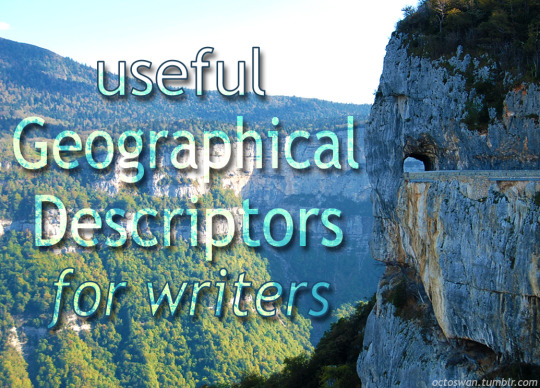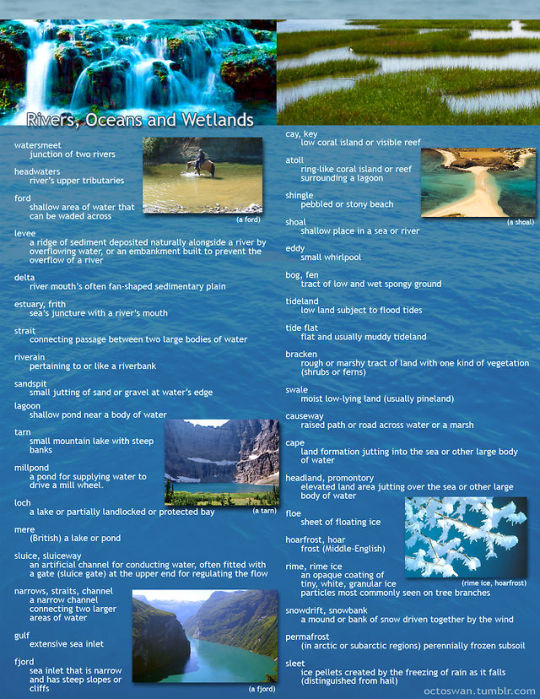Hi! I'm Aly and this is my writing blog. It's here that I'll share my writings and probably answer some story prompts too.
Don't wanna be here? Send us removal request.
Text
Fantasy Guide to Political Structures

A Horse! A Horse! My X for a Horse!
Let's be honest, fantasy authors love their kingdoms and empires. You can throw a rock in a bookshop or a library in the fantasy section and you will 99.99999% hit a fantasy book that will be set in or mention either of those structures. But what are they really? What's the difference between them all? Are there any more examples of structures that would suit your WIP better? Are you using the right terms? Let's have a closer look.
Duchy

A Duchy is a small territory ruled by a Duke/Duchess. While Duchies can be found in kingdoms, some duchies were sovereign states in their own right. Duchies are usually small by land mass but some duchies such as Burgundy were extremely powerful and influential. Independent Duchies were usually apart of a kingdom but grew so powerful that they eventually broke away to become a sovereign state in their own right. An example would be modern day Luxembourg, historic Milan and Burgundy.
Principality

A principality is territory ruled by a Prince/Princess. A principality is typically smaller than a kingdom and in some instances, can be apart of a larger kingdom or be a sovereign state. Principalities have a history of having broken away from a larger kingdom or eventually becoming apart of a kingdom. A principality within a kingdom is ruled by a Prince/Princess, usually an heir of the monarch and can be used to train them up to assume the throne in the future. Examples include Monaco, Liechtenstein and Andorra.
Kingdom

A sovereign state/country that is ruled by ruling King or a Queen. A kingdom is much larger and more powerful than a principality. Kingdoms can be feudal, meaning they are ruled in a strict hierarchy or an autocracy where the monarch rules alone with minimal input from the government or constitutional where the monarch is more of a figurehead and the government has a good chunk of control. Examples include England, Thailand and modern day Spain.
Commonwealth

A Commonwealth isn't a popular choice in fantasy but it is an interesting structure. A Commonwealth in its most basic form is a collection of states that are linked by either a shared culture or history. A Commonwealth can be a politically power or an economic power, with every state allowed to participate as much as they like. Not one state leads the others, it is all one group of equals. A Commonwealth can be a good idea for a group of nations that are more powerful together with them keeping their own independence.
Federation

A Federation is a political structure that is made up of united states or countries that are under a single government but each state is still independent and rules itself. Each state can have different laws, different cultures and economies but they all answer to the single government. Examples include the United States of America.
Republic

A Republic is a territory that is ruled by leaders and heads of state that have been elected on merit and by choice of the people. Republics are not just countries but can also be much smaller areas such as cities. Republics are democratic in nature, with the people having a say in who leads them in accordance to a constitution. There are many kinds of Republic: presidential, parliamentary, federal, theocratic, unitary. Examples of Republics include the Republic of Ireland and the city of Florence.
Protectorate

A Protectorate is a country/region/territory that is independent but relies on a larger, more powerful state for protection either in a military or diplomatic sense. A Protectorate was often used by Empires in order to maintain control over an area without annexing it. There are many reasons a larger state and the protectorate would agree to this, mainly the protectorate is much smaller meaning it is far more vulnerable to attack or it has very little power when compared to other states. A Protectorate allows the territory some power to rule itself but the larger state may feel the need or desire to interfere in the dealings of the territory. Examples of protectorates include the client kingdoms of the Roman Empire like Egypt before its annexation and Puerto Rico.
Empire

An Empire is a collection of nations that are united under one sovereign head of state or government. An Empire is formed by one nation steadily taking control of other nations, either through straight invasion and colonization or acquiring them through marriage and other less violent ways. An Empire is powerful mainly because it can drum up more resources, more influence and more military power. An Empire might impose the traditions, beliefs and culture of its principal nation - the nation that started it all - onto its colonies for better control and feeling of uniformity. Empires never last, that is something to always remember. Empires will eventually fragment due to the vast size and sometimes revolt among the conquered states. Examples of empires include the Roman Empire, the Byzantine Empire, the Ottoman Empire.
5K notes
·
View notes
Text
WRITING PROMPTS - Merfolk
Mermaids are humans who killed themselves by drowning, and their lungs never stop burning.
"Where's your tail?"
Merfolk view us like aliens, and many don't believe in our existence.
"Oh, my angel of the sea..."
The king of the merfolk is immortal, but he hasn't figured that out yet.
"Drown me, if you dare."
Pirates and merfolk work together to overthrow an unjust king.
"I love the taste of the sea when it passes from your tongue to mine."
26 notes
·
View notes
Text
#69 🌙🖤🤍
You're about to jump off the roof of a neighboring apartment complex, too ashamed to let your own neighbors see your plunge. You failed to consider the other apartments nearby before planning your descent, however. Before you're about to jump, feet on the ledge, you make eye contact with a girl in her apartment eating ramen noodles with a terrified expression.
21 notes
·
View notes
Text
The witch lovingly brings you to her home to meet her pet. A wounded dragon suddenly crashes outside the door. You're scared but then anguished for her. "Mango!" she shouts furiously, "stop bringing your hunts home!!" Sitting atop the kill, an orange cat purrs, licking its blood-stained paws.
5K notes
·
View notes
Text

— Anaïs Nin, in a letter to Henry Miller
1K notes
·
View notes
Text
You've been writing and sending out letters for years. Just off a whim. No return address, and no one answers. Until today—one of your letters returned. Opened, with a reply, and signed.
24 notes
·
View notes
Text
You’re a knight with a small pet dragon you raised from birth. They can translate what other dragons say. Instead of slaying another dragon for the princess, you attempt to settle this diplomatically.
5K notes
·
View notes
Text
Tips for writing flawed but lovable characters.
Flawed characters are the ones we root for, cry over, and remember long after the story ends. But creating a character who’s both imperfect and likable can feel like a tightrope walk.
1. Flaws That Stem From Their Strengths
When a character’s greatest strength is also their Achilles' heel, it creates depth.
Strength: Fiercely loyal.
Flaw: Blind to betrayal or willing to go to dangerous extremes for loved ones.
“She’d burn the whole world down to save her sister—even if it killed her.”
2. Let Their Flaws Cause Problems
Flaws should have consequences—messy, believable ones.
Flaw: Impatience.
Result: They rush into action, ruining carefully laid plans.
“I thought I could handle it myself,” he muttered, staring at the smoking wreckage. “Guess not.”
3. Show Self-Awareness—or Lack Thereof
Characters who know they’re flawed (but struggle to change) are relatable. Characters who don’t realize their flaws can create dramatic tension.
A self-aware flaw: “I know I talk too much. It’s just… silence makes me feel like I’m disappearing.” A blind spot: “What do you mean I always have to be right? I’m just better at solving problems than most people!”
4. Give Them Redeeming Traits
A mix of good and bad keeps characters balanced.
Flaw: They’re manipulative.
Redeeming Trait: They use it to protect vulnerable people.
“Yes, I lied to get him to trust me. But he would’ve died otherwise.”
Readers are more forgiving of flaws when they see the bigger picture.
5. Let Them Grow—But Slowly
Instant redemption feels cheap. Characters should stumble, fail, and backslide before they change.
Early in the story: “I don’t need anyone. I’ve got this.”
Midpoint: “Okay, fine. Maybe I could use some help. But don’t get used to it.”
End: “Thank you. For everything.”
The gradual arc makes their growth feel earned.
6. Make Them Relatable, Not Perfect
Readers connect with characters who feel human—messy emotions, bad decisions, and all.
A bad decision: Skipping their best friend’s wedding because they’re jealous of their happiness.
A messy emotion: Feeling guilty afterward but doubling down to justify their actions.
A vulnerable moment: Finally apologizing, unsure if they’ll be forgiven.
7. Use Humor as a Balancing Act
Humor softens even the most prickly characters.
Flaw: Cynicism.
Humorous side: Making snarky, self-deprecating remarks that reveal their softer side.
“Love? No thanks. I’m allergic to heartbreak—and flowers.”
8. Avoid Overdoing the Flaws
Too many flaws can make a character feel unlikable or overburdened.
Instead of: A character who’s selfish, cruel, cowardly, and rude.
Try: A character who’s selfish but occasionally shows surprising generosity.
“Don’t tell anyone I helped you. I have a reputation to maintain.”
9. Let Them Be Vulnerable
Vulnerability adds layers and makes flaws understandable.
Flaw: They’re cold and distant.
Vulnerability: They’ve been hurt before and are terrified of getting close to anyone again.
“It’s easier this way. If I don’t care about you, then you can’t leave me.”
10. Make Their Flaws Integral to the Plot
When flaws directly impact the story, they feel purposeful rather than tacked on.
Flaw: Their arrogance alienates the people they need.
Plot Impact: When their plan fails, they’re left scrambling because no one will help them.
Flawed but lovable characters are the backbone of compelling stories. They remind us that imperfection is human—and that growth is possible.
9K notes
·
View notes
Text
Tips for writing flawed but lovable characters.
Flawed characters are the ones we root for, cry over, and remember long after the story ends. But creating a character who’s both imperfect and likable can feel like a tightrope walk.
1. Flaws That Stem From Their Strengths
When a character’s greatest strength is also their Achilles' heel, it creates depth.
Strength: Fiercely loyal.
Flaw: Blind to betrayal or willing to go to dangerous extremes for loved ones.
“She’d burn the whole world down to save her sister—even if it killed her.”
2. Let Their Flaws Cause Problems
Flaws should have consequences—messy, believable ones.
Flaw: Impatience.
Result: They rush into action, ruining carefully laid plans.
“I thought I could handle it myself,” he muttered, staring at the smoking wreckage. “Guess not.”
3. Show Self-Awareness—or Lack Thereof
Characters who know they’re flawed (but struggle to change) are relatable. Characters who don’t realize their flaws can create dramatic tension.
A self-aware flaw: “I know I talk too much. It’s just… silence makes me feel like I’m disappearing.” A blind spot: “What do you mean I always have to be right? I’m just better at solving problems than most people!”
4. Give Them Redeeming Traits
A mix of good and bad keeps characters balanced.
Flaw: They’re manipulative.
Redeeming Trait: They use it to protect vulnerable people.
“Yes, I lied to get him to trust me. But he would’ve died otherwise.”
Readers are more forgiving of flaws when they see the bigger picture.
5. Let Them Grow—But Slowly
Instant redemption feels cheap. Characters should stumble, fail, and backslide before they change.
Early in the story: “I don’t need anyone. I’ve got this.”
Midpoint: “Okay, fine. Maybe I could use some help. But don’t get used to it.”
End: “Thank you. For everything.”
The gradual arc makes their growth feel earned.
6. Make Them Relatable, Not Perfect
Readers connect with characters who feel human—messy emotions, bad decisions, and all.
A bad decision: Skipping their best friend’s wedding because they’re jealous of their happiness.
A messy emotion: Feeling guilty afterward but doubling down to justify their actions.
A vulnerable moment: Finally apologizing, unsure if they’ll be forgiven.
7. Use Humor as a Balancing Act
Humor softens even the most prickly characters.
Flaw: Cynicism.
Humorous side: Making snarky, self-deprecating remarks that reveal their softer side.
“Love? No thanks. I’m allergic to heartbreak—and flowers.”
8. Avoid Overdoing the Flaws
Too many flaws can make a character feel unlikable or overburdened.
Instead of: A character who’s selfish, cruel, cowardly, and rude.
Try: A character who’s selfish but occasionally shows surprising generosity.
“Don’t tell anyone I helped you. I have a reputation to maintain.”
9. Let Them Be Vulnerable
Vulnerability adds layers and makes flaws understandable.
Flaw: They’re cold and distant.
Vulnerability: They’ve been hurt before and are terrified of getting close to anyone again.
“It’s easier this way. If I don’t care about you, then you can’t leave me.”
10. Make Their Flaws Integral to the Plot
When flaws directly impact the story, they feel purposeful rather than tacked on.
Flaw: Their arrogance alienates the people they need.
Plot Impact: When their plan fails, they’re left scrambling because no one will help them.
Flawed but lovable characters are the backbone of compelling stories. They remind us that imperfection is human—and that growth is possible.
9K notes
·
View notes
Text
In the animal kingdom, humans are viewed like witches/warlocks: they MIGHT help you benevolently in your time of need, or they might eat you alive, or they might save you but keep you forever. So you know just how serious things are when they say to you, "Go get a human."
5K notes
·
View notes
Text
Beware the Ides of March 🔪🔪
3 notes
·
View notes
Photo





I made these as a way to compile all the geographical vocabulary that I thought was useful and interesting for writers. Some descriptors share categories, and some are simplified, but for the most part everything is in its proper place. Not all the words are as useable as others, and some might take tricky wording to pull off, but I hope these prove useful to all you writers out there!
(save the images to zoom in on the pics)
215K notes
·
View notes
Text
You’ve always been able to hear the whispers of gods. They’re all always saying different things, so it’s difficult to pick out what any of them are saying at any given time... But one day, you hear all the voices converge into one. "RUN AWAY! FLEE! PLEASE!"
3K notes
·
View notes
Text
Cast out by your family, disowned by your mom, you are alone in the world. You stumble into the abandoned temple of a Goddess and in your heart, adopt her as your mother. You wake up the next morning to her leaning over you. "Welcome home, my son."
3K notes
·
View notes
Text
𓏲 ࣪₊♡𓂃 flowers for you part three - pick a flower, get a prompt
[ asters ] - "for a smart person, you're a dumba** for not realizing that b is flirting with you." a looks back at c in pure bewilderment. "b is not flirting with me." "are you serious?" *b casually making a heart for a's latte*
[ irises ] - "just try the cake. you'll like it." b pushes a plate of [flavor] cake to a. "how would you know if i will like it?" "babe, i can read you like the back of my hand. try it." *a tries the cake, and likes it* "so...?" "you might be right, this time."
[ hibiscuses ] - "pretty..." a was sitting on the couch reading a book. b was staring, sitting in a different seat from a. "how did i get so lucky?" b mutters. "what was that?" *a looks over at b* "i didn't say anything."
[ hydrangeas ] - "kill it! oh my god, kill it!" b comes home to a rather large spider on the wall. b is deathly afraid of spiders. a is also afraid of spiders. "i'm not doing that! you do it!" *now arguing over who needs to kill the spider* *spider disappears* "WHERE DID IT GO?!"
[ lavender ] - *a hugs b* still in the hug, "you smell good." a lets out a small laugh. "why are you sniffing me?" "you know, most people would say thank you," b sasses. "thank you."
[ daylilies ] - b looks down and sees a has fallen asleep during the movie. quietly, b turns off the tv, moves the remote and shifts themselves. "is the movie over?" a mumbles sleepily. "mhmm, go back to sleep." *b snuggles a with the fluffy blanket*
[ forget-me-nots ] - it's been years since a and b have seen each other. life was life-ing and they grew apart. but one day, b gets a text to 'turn around.' *a standing across the street with the biggest smile on their face* "did you miss me?"

send me some more flowers, and i'll keep making more of these!
42 notes
·
View notes
Text
𓏲 ࣪₊♡𓂃 flowers for you part one - pick a flower, get a prompt
[ roses ] - "i don't know how you can't see i'm clearly in love with you and everything you do." a says this while b has headphones on, but b hears it and gets flustered.
[ tulips ] - a is hardly home, always constantly working. one day they come home and overhear b crying in the bedroom. "what's wrong?" "just stay home for a few days... please."
[ carnations ] - b and a are such amazing best friends that their families know each other. one day b is over at a's house helping a's mom with the dishes and mom spills a secret. "i'm just so happy a asked you out. you have no idea how hard it was to watch you two do nothing but be obvious." "a never asked me out..." *cue a walking in with a bouquet of flowers*
[ azaleas ] - while at a park, a's dog gets loose and runs off to a spot near a tree. a chases right after but when they get there, they see a stranger, b playing with the dog as if it's theirs. a's dog isn't open to strangers.
[ lilies ] - b's parents passed away a few months ago and a is doing their best to support their grieving parter. a decides that they'll make b's favorite meals. "what is all of this?" "i just want you to relax and eat. you haven't been eating well." *b takes a bite and breaks down crying* "it tastes just like mom's cooking." *sobs harder*
[ peonies ] - b has a big crush on a, and a has a big crush on b. their friends set them up a date, that goes terribly wrong, but has a great result. "we f*cked up." *an hour later* "they're making out in the rain, so i guess it worked out."
[ sunflowers ] - a finds a letter with their name on it. turns out it was a letter b wrote to confess their feelings but never gave it to them. "you weren’t suppose to read that." "is it too late for me to confess my feelings?" "wha?"
[ dahlias ] - b spent hours making a large paper bouquet of flowers because a says they don't get flowers because they always die in the end. "what is this?" "flowers that will last. ignore the mess behind me."
[ chrysanthemums ] - b is allergic to flowers but doesn't have the heart to tell a. "thank you so m-" *sneeze* "is everything okay, love?" "of course, it was just a tickle." *sneezes again once a walks out of the room.*
87 notes
·
View notes
Text
Body Language
When someone is...
Sad

Face/Body:
Avoidant/reduced eye contact
Drooping eyelids
Downcast eyes
Frowning
Raised inner ends of eyebrows
Dropped or furrowed eyebrows
Quivering lip/biting lip
Wrinkled nose
Voice:
Soft pitch
Low lone
Pauses/hesitant speech
Quiet/breathy
Slow speech
Voice cracks/breaking voice
Gestures/Posture:
Slouching/lowered head
Rigid/tense posture
Half formed/slow movement
Fidgeting or clasped hands
Sniffing or heavy swallows
Self soothing gestures (running hands over the arms, hand over heart, holding face in palms, etc)
17K notes
·
View notes